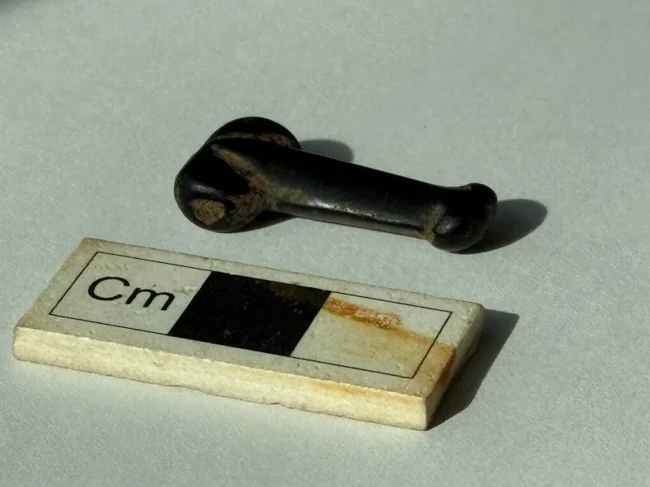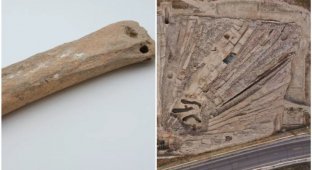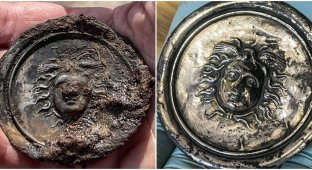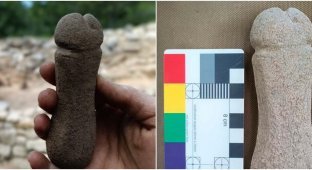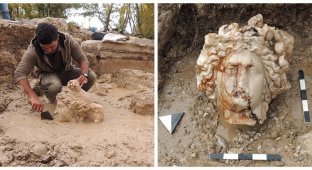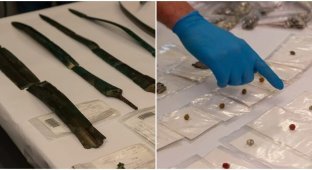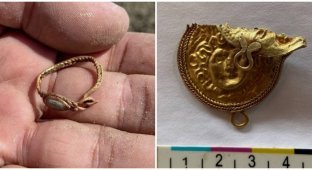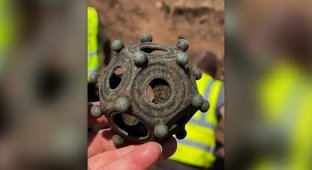Archaeologists found a small "lucky penis" aged 2000 years (4 photos)
Archaeologists in the UK have found a miniature Roman phallus pendant dating back about 2,000 years. The unusual find was made by excavators near Hadrian's Wall in Northumberland. 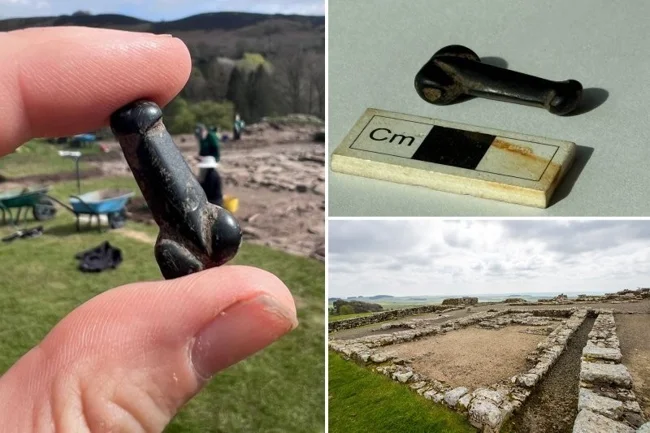
The jet pendant is an intricately carved image of a male genital organ. Historians report that such amulets, known as "lucky phalluses," were widely used by Roman soldiers to bring good luck in battle. In addition, such symbols were given to children in the hope of protecting them from the evil eye. 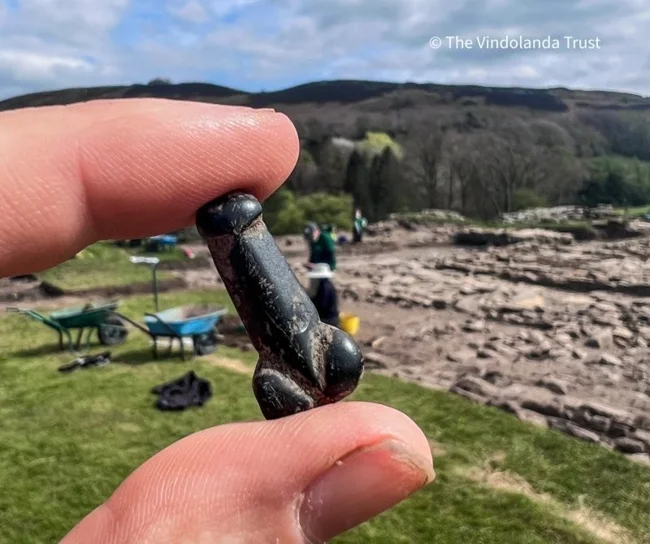
According to archaeologists, the amulet was lost by one of the Roman soldiers in the 4th century AD. During excavations in the area of Hadrian's Wall, other phallic images were also discovered, found not only on amulets, but also on household items and mosaics. A total of 59 such artifacts have been recorded in this area. 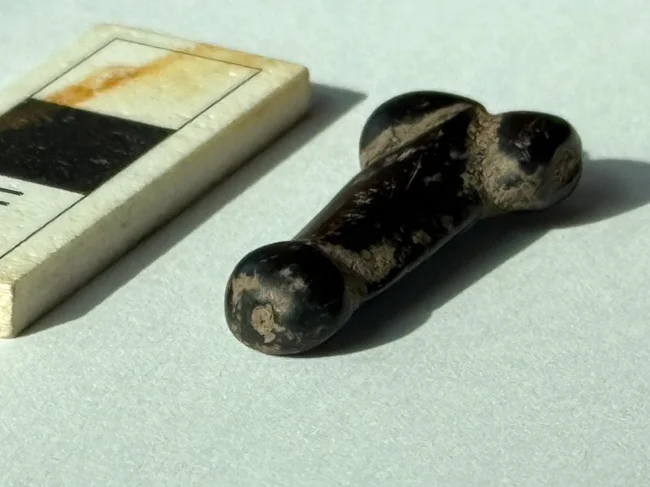
This find highlights the cultural significance of phallic symbolism in Roman culture, which was present in various aspects of life, including art and everyday life. Excavations are ongoing, and further research may bring new interesting discoveries. 